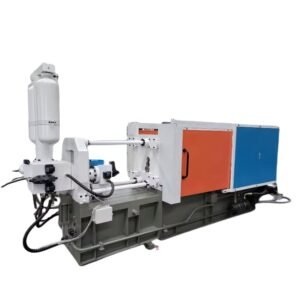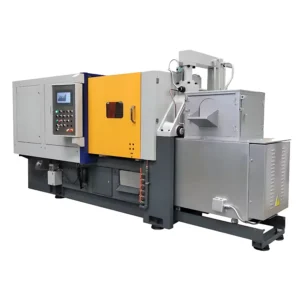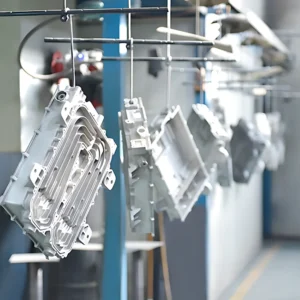Unveiling the Evolution of CNC Machining
CNC machining has experienced remarkable advancements over the years, revolutionizing modern manufacturing processes. The precision and efficiency offered by CNC machines have significantly impacted various industries, from aerospace to automotive, enabling the production of complex parts with unparalleled accuracy. As we look towards the future of CNC machining in 2025, it is essential to understand the key trends that are shaping this evolving landscape.
The significance of CNC machining in modern manufacturing cannot be overstated. Its ability to automate and streamline production processes has led to increased productivity and cost-efficiency for businesses worldwide. Moreover, the integration of advanced technologies like AI and machine learning has further enhanced the capabilities of CNC systems, allowing for more intricate designs and faster production speeds.
In discussing the future trends of CNC machining, experts from Parallel Precision emphasize the importance of prioritizing quality over cost. They highlight that opting for the cheapest supplier may result in compromised product quality. This underscores the critical role that precision and reliability play in CNC machining operations, especially as industries demand higher standards and tighter tolerances.
Advanced Technologies Shaping CNC Machining
In the realm of CNC machining, advanced technologies are playing a pivotal role in shaping the future landscape of manufacturing. These innovations are not only enhancing the capabilities of CNC machines but also revolutionizing the efficiency and precision of production processes.
Innovative CNC Machine Capabilities
The integration of artificial intelligence (AI) and machine learning has brought about a paradigm shift in CNC systems. AI algorithms can optimize tool paths, predict maintenance requirements, and even self-adjust machining parameters to ensure optimal performance. This level of automation not only improves efficiency but also reduces human error, leading to higher-quality output.
Moreover, advancements in multi-axis machining have opened up new possibilities for creating complex geometries with unprecedented accuracy. By enabling simultaneous movement along multiple axes, manufacturers can produce intricate parts that were previously challenging or impossible to manufacture using traditional methods.
Another groundbreaking technology making waves in CNC machining is 3D printing. By incorporating additive manufacturing techniques into CNC processes, manufacturers can build components layer by layer, offering greater design flexibility and material efficiency. This convergence of subtractive and additive manufacturing is reshaping how prototypes and end-use parts are fabricated.
Automation and Robotics in CNC
Automation plays a crucial role in enhancing the overall efficiency and productivity of CNC operations. By automating repetitive tasks such as tool changes, part loading/unloading, and quality inspection, manufacturers can significantly reduce cycle times and labor costs while maintaining consistent quality standards.
The integration of robotics further amplifies these benefits by reducing the reliance on manual labor in CNC operations. Robots can handle heavy workpieces with precision, operate continuously without fatigue, and perform tasks that may pose safety risks to human operators. This not only boosts productivity but also ensures a safer working environment.
Additionally, the implementation of the Internet of Things (IoT) technology allows for real-time monitoring of machines and processes. By collecting data on machine performance, energy consumption, and tool wear, manufacturers can implement predictive maintenance strategies to prevent unexpected downtime and optimize production schedules.
Cost Dynamics and Pricing Strategies
Understanding the cost dynamics and pricing strategies in CNC machining is crucial for both manufacturers and customers. Various factors influence the overall costs of CNC machining services, and innovative pricing models have emerged to cater to the diverse needs of clients.
Factors Influencing CNC Machining Costs
One of the primary factors that impact CNC machining costs is the complexity of the part being manufactured. Intricate designs with tight tolerances or complex geometries require more time and specialized tools, leading to higher production costs. Additionally, the choice of material plays a significant role in cost variations. Exotic materials or high-performance alloys are more expensive to machine due to their hardness or unique properties, increasing overall manufacturing costs.
Moreover, geographic location can also affect pricing in CNC machining. Labor costs, overhead expenses, and regulatory requirements vary across regions, influencing the final price offered by machining shops. Manufacturers operating in high-cost regions may charge more for their services compared to those in lower-cost areas.
Innovative Pricing Models in CNC Machining
To adapt to the evolving landscape of CNC machining, innovative pricing models have been introduced to provide more flexibility and transparency to customers. One such model involves variable pricing based on machine capabilities. Machines equipped with advanced features or higher precision may command a premium price due to their enhanced performance.
Furthermore, customized pricing strategies for different batch sizes have gained popularity in the industry. Manufacturers offer discounts for large volume orders while charging a premium for small-batch productions to account for setup and tooling costs. This tiered pricing approach incentivizes bulk orders while ensuring profitability for smaller projects.
Quality control measures have also become integral to pricing differentiation in CNC machining. Companies that invest in stringent quality assurance processes and certifications may justify higher prices by guaranteeing superior product quality and consistency. Customers are willing to pay a premium for reliable suppliers that prioritize quality standards.
Quality Assurance and Precision Standards
Maintaining high-quality standards and precision in CNC machining is paramount to ensure the reliability and performance of machined components. Quality assurance practices and adherence to precision engineering standards play a crucial role in meeting customer expectations and industry requirements.
Ensuring Quality in CNC Machining
ISO certifications serve as a benchmark for quality management systems in CNC machining facilities. Companies that hold ISO certifications demonstrate their commitment to maintaining consistent quality standards throughout their processes. These certifications not only instill confidence in customers but also contribute to the overall reputation and credibility of the manufacturer.
Quality control measures are integral to ensuring the accuracy and reliability of machined parts. From initial design validation to final inspection, rigorous quality checks help identify any deviations or defects early in the production process. By implementing comprehensive quality control protocols, manufacturers can minimize rework, reduce scrap rates, and deliver products that meet stringent specifications.
Precision tools and techniques are essential for achieving the desired level of accuracy in CNC machining operations. High-precision cutting tools, advanced metrology equipment, and state-of-the-art machining centers enable manufacturers to achieve tight tolerances and intricate geometries with exceptional repeatability. Continuous investment in precision technology allows companies to push the boundaries of what is achievable in terms of part complexity and accuracy.
Precision Engineering and Performance Standards
In industries where precision is non-negotiable, such as aerospace, medical devices, and automotive sectors, meeting high-precision requirements is imperative. Components used in critical applications demand absolute accuracy to ensure safety, reliability, and optimal performance. CNC machining plays a vital role in producing these precision parts with minimal margin for error.
Adherence to tight tolerances is essential for specialized applications where even minor deviations can lead to catastrophic consequences. Whether manufacturing components for aerospace engines or medical implants, maintaining precise dimensions within microns is essential for seamless integration and functionality.
Continuous improvement in precision engineering practices is key to enhancing performance standards in CNC machining. By embracing new technologies, refining processes, and upskilling employees, manufacturers can elevate their capabilities and deliver superior products that exceed customer expectations. Striving for excellence in precision engineering ensures competitiveness in an increasingly demanding market.
Pioneering the Future of CNC Machining
As we look ahead to 2025, the future of CNC machining is poised for significant advancements driven by technological innovation and industry trends. Embracing these changes and pioneering new approaches will be essential for manufacturers to stay competitive in a rapidly evolving landscape.
In summary, key trends shaping CNC machining in 2025 include the integration of AI and machine learning, advancements in multi-axis machining, automation and robotics, as well as innovative pricing models based on machine capabilities and batch sizes. These trends underscore the industry’s commitment to enhancing efficiency, precision, and cost-effectiveness in manufacturing processes.
Adapting to technological advancements is crucial for companies seeking to maintain a competitive edge. By investing in cutting-edge technologies, upskilling employees, and optimizing production workflows, manufacturers can unlock new opportunities for growth and differentiation in the market.
Looking ahead, the transformative potential of CNC machining lies in its ability to drive innovation across various industries. From aerospace and automotive to healthcare and consumer electronics, CNC machining will continue to play a pivotal role in shaping the future of manufacturing by enabling faster prototyping, customization, and production scalability.
By staying at the forefront of technological developments and embracing a culture of continuous improvement, businesses can pioneer the future of CNC machining and unlock limitless possibilities for creativity, efficiency, and success.




